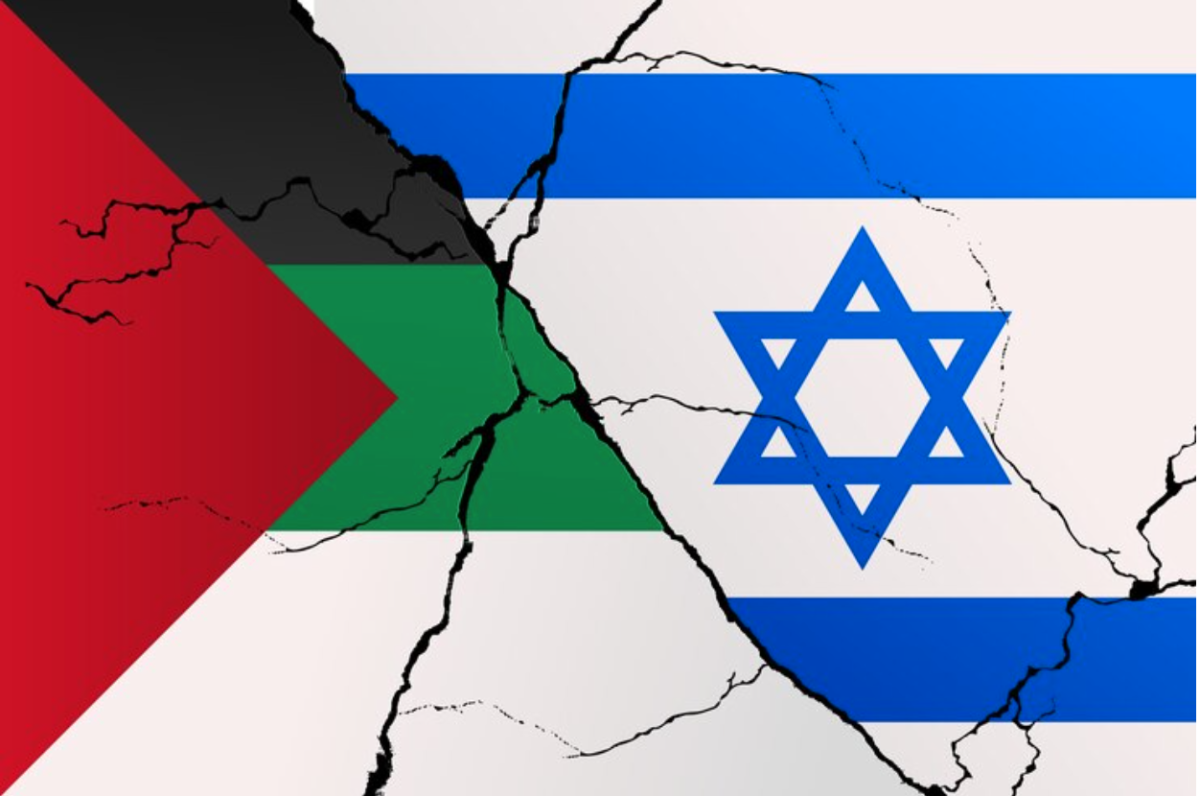On Oct. 7, Palestinian militant group Hamas launched a coordinated attack on Israel using thousands of rockets as well as surprise cross-border raids. In retaliation, Israel declared war on Hamas and blocked off all supply lines, including those for basic necessities, into the Gaza Strip. The devastating conflict has once again highlighted a century-old divide, not just between the two states, but within the international community as well. However, a divided opinion should not divide us from our moral values.
Since Hamas’ initial attack on Israel on Oct. 7, antisemitic hate incidents including harassment, vandalism and assault have almost quadrupled. Similarly, Islamophobic incidents have risen, exemplified by the shocking murder of six-year-old Wadea Al-Fayoume, who was stabbed to death by his family’s landlord in their Chicago home. The suspect has been charged with murder and hate crimes, for targeting Al-Fayoume’s household due to them being Muslim. Al-Fayoume’s mother was also wounded but survived. His story has become a symbol against anti-Palestinian bigotry.
Violence and discrimination have fueled dissent as each new development in the current conflict prompts waves of protests across the world. Demonstrations have arisen in support of Palestinians across the Middle East as well as parts of Europe, Asia, and the US. Jewish communities in countries such as the US and France have also held rallies standing with Israel.
In urban centers such as New York City, home to one of the largest Muslim communities in the country and the largest Jewish population outside Israel, large demonstrations have blocked traffic and led to arrests.
This divide is perhaps clearest in university campuses across the nation, with reactions to the Hamas attack split along the same faultline. While some see the attack as a legitimate act of resistance, others condemn it for terrorism. Students from each side regard the other as rejoicing in destruction and murder. Even in our own community, this divide is startling. It is not uncommon to see posts and stories on social media platforms such as Instagram in support of either side.
Support for Israel or Palestine is well founded in itself— in fact, it’s nice to see communities coming together. However, it is the dismissal and demonization of one side of the conflict that is problematic. Although each individual has every right to believe and express their opinions, there is a line between condemning an entity’s actions and celebrating the murder of innocent civilians. As fellow human beings, we should always strive to curate empathy, even if we are at complete odds with the situation. Above all, we should be conscious that human life, regardless of identifying factors, is valuable.
A common justification of celebrating violence and killings is the idea that it was “deserved.” However, a key flaw to this logic is the fact that civilians are not equivalent to nor responsible for the consequences of their leaders’ actions. It is essential to recognize that internal diversity exists within a country; not all of its people share the exact same view with the ruling party even if they agree on an overarching ideal.
Moreover, nearly all of the decisions are made by a very small ruling group, as opposed to the general public. There is no basis for blaming innocent civilians for words spoken by the few in power. Over-generalizing an entire country as “evil” and “the enemy” incorrectly reduces individual human beings to statistics and sustains the rejoicing of events we really should be mourning.
In this particular sense, cataloging each clash as either a victory or a loss conforms to a false dichotomy of the situation. Categorizing every occurrence as black-or-white, right or wrong, good or bad is counterproductive. In reality, most actions and consequences lie on a complicated spectrum. Contextualized, portraying either Israel or Palestine as the unchangeable “enemy” or “hero” disregards the nuance and complicated historical background.
That’s not to say support for either side is invalid– only that throughout history, there has never been one side in any conflict that’s completely innocent and free of violent acts. Believing in the rhetoric of one group is not mutually exclusive to denouncing murder. In other words, simply because you support Israel or Palestine does not mean you cannot condemn the killing of innocent civilians on either side of the border.
No matter which side of the conflict you support, it is important to recognize that discrimination and hatred towards people simply based on their country of origin creates nothing but more suffering and harm. Rising rates of antisemitic and Islamophobic incidents heighten fear and distrust and do not produce solutions. Disagreeing with a person who has an opposing view on the situation is completely understandable, but hurting others through harassment or physical violence does nothing to forward your cause.
Ultimately, regardless of your view of the conflict, death and violence should always be deserving of grief and respect. Any human life, whether Israeli or Palestinian, is invaluable.









